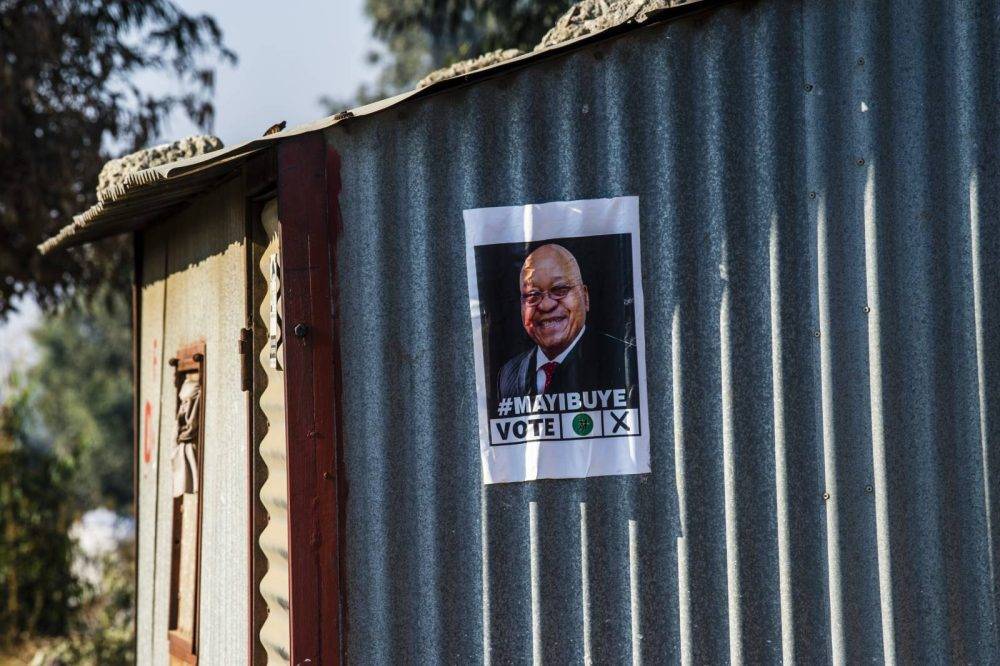
How will a coalition transform our society
The 2024 election delivered us ballot boxes full of paradoxes. The snaking queue at my polling station seethed with anger at the Electoral Commission of South Africa’s (IEC) inefficiencies, poised to strike with venom against the incumbent government. But amid it all, there was great ubuntu as mamas and the youth exhorted each other to endure the hours-long marathon to the voting booths and make history.
Most of us saw a coalition coming, but I, for one, still gasped when I saw the ANC’s vote down at 40%. We’ve voted for change; now it’s time for us to talk about how to transform our society.
My database of top news articles from May in IOL, News24 and TimesLive tells the story of how we got to this strange new place, coalition country.
The extent to which we expected to end up here is shown by the fact that “coalition” is the word most strongly associated with the ANC in the database. The word with the second strongest association with the ANC was “lose”. This occurs mainly in phrases like “the ANC is likely to lose its majority”.
Perhaps surprisingly, “IFP” (Inkatha Freedom Party) came in as having the third strongest association with the ANC’s name. In the data, parties’ names often appear together in lists, but two pre-election statements influenced this association. First, on the campaign trail in KwaZulu-Natal, Economic Freedom Fighters (EFF) leader Julius Malema encouraged older voters to stop voting for the ANC and IFP because Nelson Mandela and Mangosuthu Buthelezi are gone. Second, IFP leader Velenkosini Hlabisa said on the eve of the elections that “We’d be mad” to enter a coalition with the ANC. This is just one example of pre-election posturing about coalitions that may or may not need revisiting as parties sit down to piece together workable national and provincial governments.
The IFP’s name was also strongly associated with the Democratic Alliance (DA) because of its collaboration in the Multi-Party Charter. Now, the charter’s moonshot has predictably failed, and this grouping seems to be breaking up, with the exit of ActionSA.
DA leader John Steenhuisen’s name is strongly associated with his party, as can be expected. As in April, the words used to describe Steenhuisen’s actions paint a belligerent picture: “Steenhuisen hits back after DA flag burning ad”, “Steenhuisen threatened legal action against the government” over the National Health Insurance Bill, “Steenhuisen labelled [several small parties] ‘political mercenaries’”. He showed another side of his personality to potential DA voters, as he “urged” and “pleaded with” them to turn up on election day.
Meanwhile, Jacob Zuma of the uMkhonto weSizwe (MK) party has had the police on high alert for physical violence after he said that the IEC was “provoking” his members by announcing the election results despite his party’s untested allegations of electoral fraud. Despite this, most of the mentions of his name in conjunction with the party straightforwardly identified it as “Zuma’s MK party” or “Zuma and the MK party” without describing his actions.
The word “leader”, also strongly associated with the MK party’s name, tells the ongoing story of the fight between Zuma and founder Jabulani Khumalo for control of the party. Khumalo showed up at the IEC’s results operations centre in Midrand on Wednesday, 22 May, saying, “I’m here because I’m the leader of MK.” The IEC, by contrast, recognises Zuma as the party’s leader even though he is barred from becoming a member of parliament. After Khumalo’s case against Zuma before the electoral court was heard on Monday, 3 June, MK party members hurled words and various objects at him.
The MK party’s name was strongly associated with the EFF’s name, often because of the DA’s continuing warnings of an ANC/EFF/MK “doomsday” coalition.
Paradoxically, Malema’s recent rhetoric has seemed far more conciliatory than Steenhuisen’s or Zuma’s. He “came out batting for the IEC” on joining an election queue, but after waiting for four hours, was much less charitable, accusing the IEC of wanting another day to finish voting and saying, “That is how vote-rigging happens.” In campaigning, he “appealed to” the older voters in KwaZulu-Natal. If he had softened his speech in preparation for coalition talks, I wish other party leaders had followed this strategy, too.
It is South African voters who have brought our country to this critical moment. While the politicians trade horses in the coalition negotiations, this is an opportunity for us as citizens to reimagine our country’s future. If we believe, as seems overwhelmingly clear from the polls, that South Africa was headed in the wrong direction, then what can we do to turn the country around? The election has forced cooperation on our leaders, but are we willing to work together with those completely different from us to build a better country?
There’s no better time to shove away prejudices, pull up a chair with a supporter of that party you can’t stand, and talk with them about how we can work together for a brighter future.
Ian Siebörger is a senior lecturer in the department of linguistics and applied language studies in the faculty of humanities at Rhodes University.
 (1).png)
 7 months ago
55
7 months ago
55


















